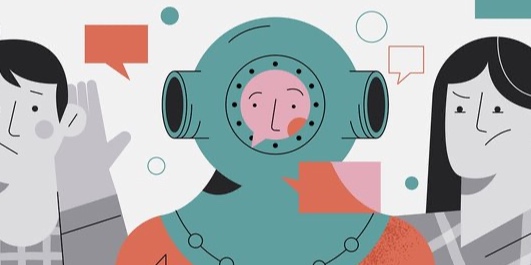
Trust is a critical part of any relationship. Without trust, especially between two romantic partners, it is difficult to have a healthy and long-lasting relationship. Trust issues can arise in a variety of ways. For example, a person who finds it difficult to trust may not believe what others say. They may doubt what others want from them and question other people's intentions and motivations. It makes it incredibly difficult to develop an intimate, close connection with another person.
Signs of Trust Issues
-Always assuming the worst: Your trust issues can also cause you to assume the worst about the people around you, even if they have proven reliable in the past. For example, when someone offers to help you, you may later wonder if they expect something from you.
-Doubt: Trust issues can make you doubt other people's intentions, even if there is little to suggest that their actions are suspicious. You may feel that others are trying to harm or deceive you.
-Self-handicapping: Trust issues often lead to self-sabotage. For example, you may engage in behaviors that hinder your relationship because you assume it's better to end now than to be disappointed later.
-Unhealthy relationships: People with trust issues almost always struggle to form healthy, long-lasting relationships. Trust may take some time to develop in romantic relationships, but people who lack trust may never experience this type of connection.
-Distancing yourself from yourself: In many cases, a lack of trust can cause people to build a wall between themselves and other people. You avoid relationships altogether for fear of betrayal or disappointment.
-Focusing on the negative: No matter the situation, you always focus on what you hope will go wrong. You tend to notice other people's flaws, weaknesses, or mistakes instead of focusing on their positive qualities.
What Causes Trust Issues?
-Betrayal in a relationship: Cheating is incredibly hurtful and can lead to trust issues in future relationships.
-Parental conflicts: If children witness trust issues within the family, they may fear that the same will happen to them in their future romantic relationships as adults.
-Social rejection: Being rejected by peers during childhood or adolescence can also make it difficult to trust other people. This type of trust issue can be exacerbated when the rejected person is unable to determine why they were excluded. Repeated rejections can make these trust issues much more difficult to overcome.
-Negative life experiences: People who experienced trauma while growing up, especially, are likely to develop trust issues in adulthood. These trust issues can manifest in many different ways, such as difficulty trusting friends or romantic partners, fear of trust-related betrayal, or difficulty forgiving people for breaking their trust.
-Attachment styles: Experts also suggest that your attachment style, or your characteristic behavior in a relationship, also plays a role in how you respond to trust in relationships. People with a secure attachment style may be more likely to trust others and forgive mistakes. When trust interferes with your ability to form healthy, stable relationships, it can also leave you feeling isolated, lonely, and misunderstood.
A 2018 study found that the tendency to trust is influenced by genetic factors. Insecurity, on the other hand, is not linked to genetics and is primarily related to socialization factors, including family dynamics and influences. People often have trust issues because they've been betrayed in the past. Early childhood experiences in particular often play an important role in shaping your ability to trust the people around you. Therapy can also help to overcome trust issues. The therapeutic alliance you form with your therapist can be a powerful tool for learning how to trust other people. By working with an experienced mental health professional, you can learn more about why you struggle with confidence and learn new coping skills to help you start to rebuild trust in your relationships. If you're trying to build trust with someone else, you need to trust yourself first. This means being open about your feelings, opinions, thoughts, and boundaries. It also means being understanding when the other person makes mistakes. Learning how to balance these two ideas will help build healthy interpersonal relationships based on trust, respect, and care.
